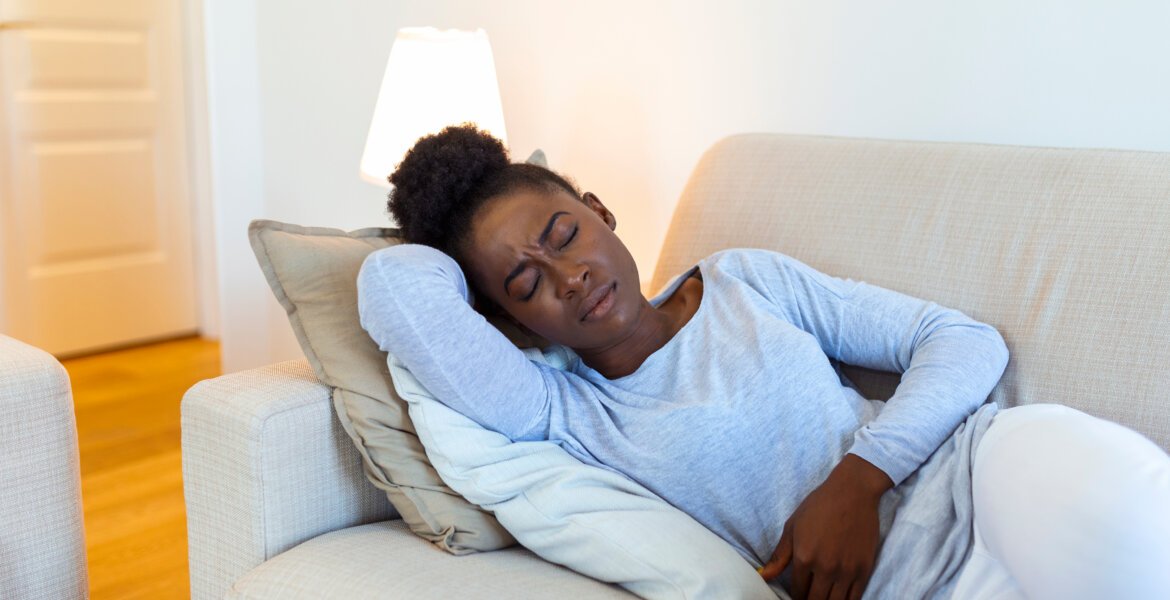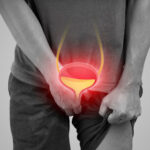By Destiny Uko
If you’ve ever felt sharp, stabbing pain in your lower abdomen before or during your period, you’re not alone. Dysmenorrhea, the medical label for period cramps, can vary from a mild ache to severe pangs that last for a day. It is a potentially debilitating condition among many Nigerian women, especially young girls. Gynaecologists have identified two forms of dysmenorrhoea.
The primary type typically occurs a year or two after your first period. It gradually eases after childbirth or as you grow older.
Secondary dysmenorrhea, in contrast, is tied to health issues like fibroids, endometriosis, or infections. It is associated with severe pain and generally lasts longer.
What Period Cramps Can Feel Like
Pain in Your Lower Belly
Your uterus tightens up to shed its lining, which can feel like a throbbing or stabbing pain.
Pain in Your Back or Legs
The cramps spread to your lower back and thighs, making it hard to sit or walk comfortably.
Nausea or Throwing Up
Some girls feel sick to their stomach or vomit during bad cramps, akin to morning sickness experienced during early pregnancy. This is caused by hormones called prostaglandins.
Headaches
Your hormones are constantly being secreted during your period, resulting in headaches or even migraines.
Fatigue
It’s not just you; hormones, pain, and losing blood can make you feel seriously tired.
Dizziness
Do you feel lightheaded? That might be from heavy bleeding, fatigue or not enough food and water.
What Causes the Pain?
Cramps happen because your body secretes prostaglandins, hormone-like chemicals that help the uterus contract and shed its lining. The more prostaglandins are secreted, the greater the pain. Some women have likened the period cramps to a heart attack.
Foods That Can Make Cramps Worse
The food you eat plays a role in your menstrual flow. Some foods are known to exacerbate the pain and you are better off avoiding them during your period. Some of these foods include:
Caffeine (coffee, soda): Makes muscles tighten more and can make you feel worse.
Salty snacks (chips, noodles): This could cause bloating.
Fried and fatty foods: It can increase inflammation and worsen your cramps.
Sugary foods: It increases the distress a lot more and saps your energy.
Alcohol: Dries you out and adds to fatigue.
The trick is to eat lighter and healthier foods during your period.
How to Feel Better
- Apply Heat – Use a hot water bottle or heating pad on your belly. Drinking warm water can also help.
- Move Around – Light exercise like stretching, walking or yoga can reduce the pain by improving blood flow.
- Drink Lots of Water – Staying hydrated can prevent bloating and cramping.
- Try Pain Relievers – Over-the-counter options like Ciprofenac, Paracetamol, Panadol can be of help.
- Sip Herbal Teas – Ginger, cinnamon, and turmeric teas have natural anti-inflammatory properties.
- See a doctor if it gets severe – If your cramps are extreme or keep getting worse, it’s time to talk to a professional.
Conclusion
Period cramps can range from a mild inconvenience to a major health challenge, but you don’t have to suffer in silence. Small lifestyle adjustments, dietary changes and medical support can make a huge difference. Caring for your menstrual health is a vital part of overall well-being.
Dysmenorrhea, commonly known as period cramps, is a condition affecting many Nigerian women, characterized by pain ranging from mild to severe. There are two types: primary, which occurs shortly after a girl's first period and tends to improve with age or childbirth; and secondary, which is linked to health problems such as fibroids or endometriosis and is more severe and persistent. Symptoms include lower abdominal pain, pain in the back or legs, nausea, headaches, fatigue, and dizziness.
Cramps are caused by the body's release of prostaglandins, which help the uterus contract. Some foods, like caffeine, salty snacks, fried foods, sugary foods, and alcohol, can exacerbate cramps. To alleviate symptoms, applying heat, engaging in light exercise, staying hydrated, and using pain relievers or herbal teas can be effective remedies. It's advised to seek medical help if cramps become increasingly severe. Making dietary and lifestyle changes, combined with medical support, can significantly improve menstrual health and overall well-being.






